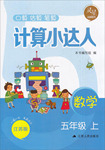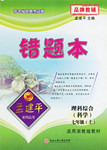题目内容
Can you remember the day when you spoke your first word? If you can, you are unusual.
Try to imagine what first few months of your life were like. I am sure you just spent most of your time
eating, sleeping and crying. As you grew older, you were awake more of the time. It took your parents more
time to play with you and talk to you. You watched and listened curiously (好奇). You began to know that
people made certain sounds to go with certain things.
Then you began to try making the sounds you heard. And step by step you were able to make the right
sound for one thing.
On that day you came to understand the secret of language. The secret is that a certain sound means a
certain thing. One sound might be as good as another. But it is no good as a word unless everybody agrees
on its meaning. Only when a group of people use the same set of sounds of things, can they understand each
other. Then, and only then do these people have a LANGUAGE.
After you found the secret of language, you learned words. Some of the words meant things, such as
BOOKS, CHAIRS and SHOES. Some words meant doing things, such as GO and SWIM, and other words
describe things, such as GOOD and DIRTY. Soon you learned to put words together to express your idea,
such as "I want to go out and play with my friends." This is language. By means of language people can
communicate (交流). So we say languages are means of communication.
B. No one, he spoke his first word
C. Most people, they spoke their first words
D. None, they spoke their first words
B. spent most of your time playing with your parents
C. could not hear any sound around you
D. spent most of your time eating, playing and crying
B. people can understand each other
C. a certain sound is for a certain thing
D. there is a special sound for each person
B. after you knew what the language was
C. before you knew the secret of the language
D. when you were a baby
B. to say what one wants to know
C. to share ideas, opinions, news, etc with one another
D. to make oneself understood by others

 灵星计算小达人系列答案
灵星计算小达人系列答案 孟建平错题本系列答案
孟建平错题本系列答案阅读理解
Wherever travelers go, cameras are sure to follow. It’s great fun to take photos, and even more fun to show slides of the trip to friends and relatives when they come back home.
There’s Aunt Sarah, smiling in front of Buckingham Palace; Aunt Sarah, smiling under the Eiffel Tower; and Aunt Sarah, smiling in a Venetian Canal. Everyone knows what Aunt Sarah looks like; they also know what Europe’s great landmarks (显著地面景观) look like.
But a young man named David, just back from a trip to Greece, asked a few friends over to see his slides. The young man had an artist’s eye. His pictures were not of familiar Greek architectures. Instead he took pictures of farmers at work in the field, fishermen repairing their nets, and bearded priests (牧师) bending over their Bibles. He captured (抓住) the color and character of the country. His friends were so interested that they asked for more.
Any amateur (外行) can do the same. All he needs is a simple camera and a little sensitivity. When he learns that a nation lives in its people as well as in its landmarks, he moves from an amateur to an artist.
1.What does the underlined word “slide” mean?
|
A.故事 |
B.幻灯片 |
C.风景 |
D.路线 |
2. People who watch Aunt Sarah’s slides would be _______.
|
A.frightened |
B.excited |
C.bored |
D.sad |
3. David’s pictures were about _______.
|
A.landmarks |
B.architectures |
C.people |
D.history |
4.David is _______.
|
A.foolish |
B.the same as Aunt Sarah |
C.strange |
D.original (有创意的) |
5. A traveler can become an artist if he _______.
|
A.takes a camera with him |
|
B.knows the history of a place |
|
C.is interested in not only the landmarks but also the people of a place |
|
D.learns how to draw and paint pictures of a place |
阅读理解
A company began to make a new kind of dog food. A party was held to show the new dog food to everyone. People from the newspapers and TV stations were there.
There was a dog at the party. He was supposed to eat the dog food and have his picture taken. The plan was to show everybody how much the dog would like the new dog food.
When the time came, a plate of the dog food was set in front of the dog. Everyone looked at the dog. But there was one problem. He didn’t eat any of it. The dog didn’t like the dog food!
The boss of the company had to do something fast. All of the people were watching. All of them were laughing. So he ate the dog food himself!
1.The company in the story ___.
|
A.takes a picture |
B.has more than on boss |
C.makes dog food |
D.makes a new machine |
2. A party was held to ___.
|
A.to feed a new animal |
B.to serve a large lunch |
|
C.for someone’s birthday |
D.to show a new kind of dog food |
3. “To show something” means “___”.
|
A.to wash it with water |
B.to let people look at it |
|
C.to turn on the television |
D.to feed it to the dogs |
4. The dog in the story ___.
|
A.wanted all the food |
B.ate all the food |
|
C.wanted to go to sleep |
D.didn’t eat the food |
5.The story shows that ___.
|
A.dogs don’t like to eat |
B.people like dog food |
|
C.some plans don’t work |
D.dogs will eat anything |
阅读理解
A Trap
Mr. Smith left his car outside his apartment one night as usual, but when he came down the next morning to go to his office, he discovered that the car wasn’t there. He called the police and told them what had happened, and they said that they would try to find the car.
When Mr. Smith came home from his office that evening, the car was back again in its usual place in front of his house. He examined it carefully to see whether it had been damaged, and found two theater tickets on one of the seats and a letter which said, “We’re very sorry. We took your car because of an emergency.”
Mr. and Mrs. Smith went to the theater with the two tickets the next night and enjoyed themselves very much.
When they got home, they found that thieves had taken almost everything they had had in their apartment.
1.What did Mr. Smith find one morning?
|
A.His car was missing. |
B.The door of the car was open. |
|
C.His car was in the garage. |
D.His car was outside of the garage. |
2. What did he do then?
|
A.He got in and drove it. |
B.He closed the door of his car. |
|
C.He called the police. |
D.He looked everywhere for it. |
3. What happened when he came home from his office that evening?
|
A.The police was waiting for him. |
B.His car was back. |
|
C.His car was damaged. |
D.His car was stolen. |
4. What did Mr. Smith find on one of the seats in his car?
|
A.Some books. |
B.Some tickets. |
|
C.Some money. |
D.Some food. |
5. What did Mr. and Mrs. Smith do with the thing(s) they found in their car?
|
A.They sold them. |
B.They gave them to their friends. |
|
C.They threw them away. |
D.They went to the theater with them. |